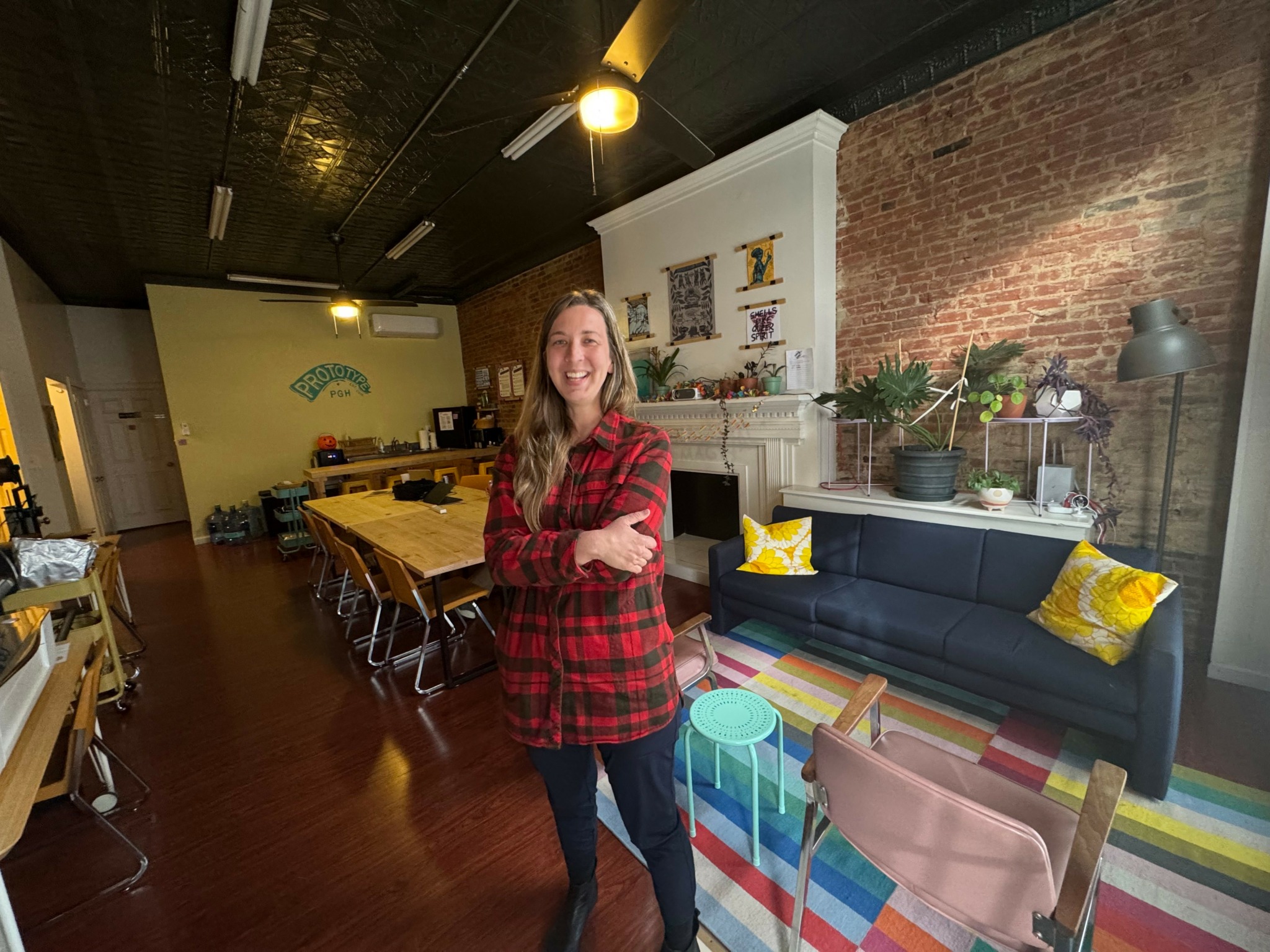We recently connected with Erin Gatz and have shared our conversation below.
Erin, thanks for joining us, excited to have you contributing your stories and insights. So let’s jump to your mission – what’s the backstory behind how you developed the mission that drives your brand?
The mission of Prototype PGH is to build gender and racial equity through tech access, workshops, and peer support. We created Prototype in 2016 as a place for low-income women and people with marginalized gender identities to come together in a supportive environment and learn new skills. We wanted to answer the question: What would it look like if low-income women and people with marginalized gender identities had low-cost access to high tech tools and equipment like laser cutters, 3D printers, screen printing, and computer aided design software?
I grew up low-income, in a single-mother household, and I did not have access to high quality out-of-school learning experiences. In fact, it wasn’t until high school that I learned about a free afterschool program at the Manchester Craftsmen’s Guild (MCG) in Pittsburgh where inner city, public school students like myself could participate in dark room photography classes, ceramics, digital arts, and drawing. MCG sent buses to my school every day, drove us to the afterschool program, fed us dinner, and taught us how to use high-end tools and equipment, before giving us public transit tickets so that we could get home. I started going every day after school for 3 years and it was a transformative experience. Not only did I fall in love with darkroom photography, but I also felt trusted to use expensive equipment, and I was held up to high expectations for one of the first times in my life. Importantly, my experience in this program was only made possible by the wrap around supports – food, childcare, transportation – that the program provided. This is what we do at Prototype – we provide marginalized communities with access to equipment and training but we also provide our members with childcare, food, and scholarships to make their participation possible.
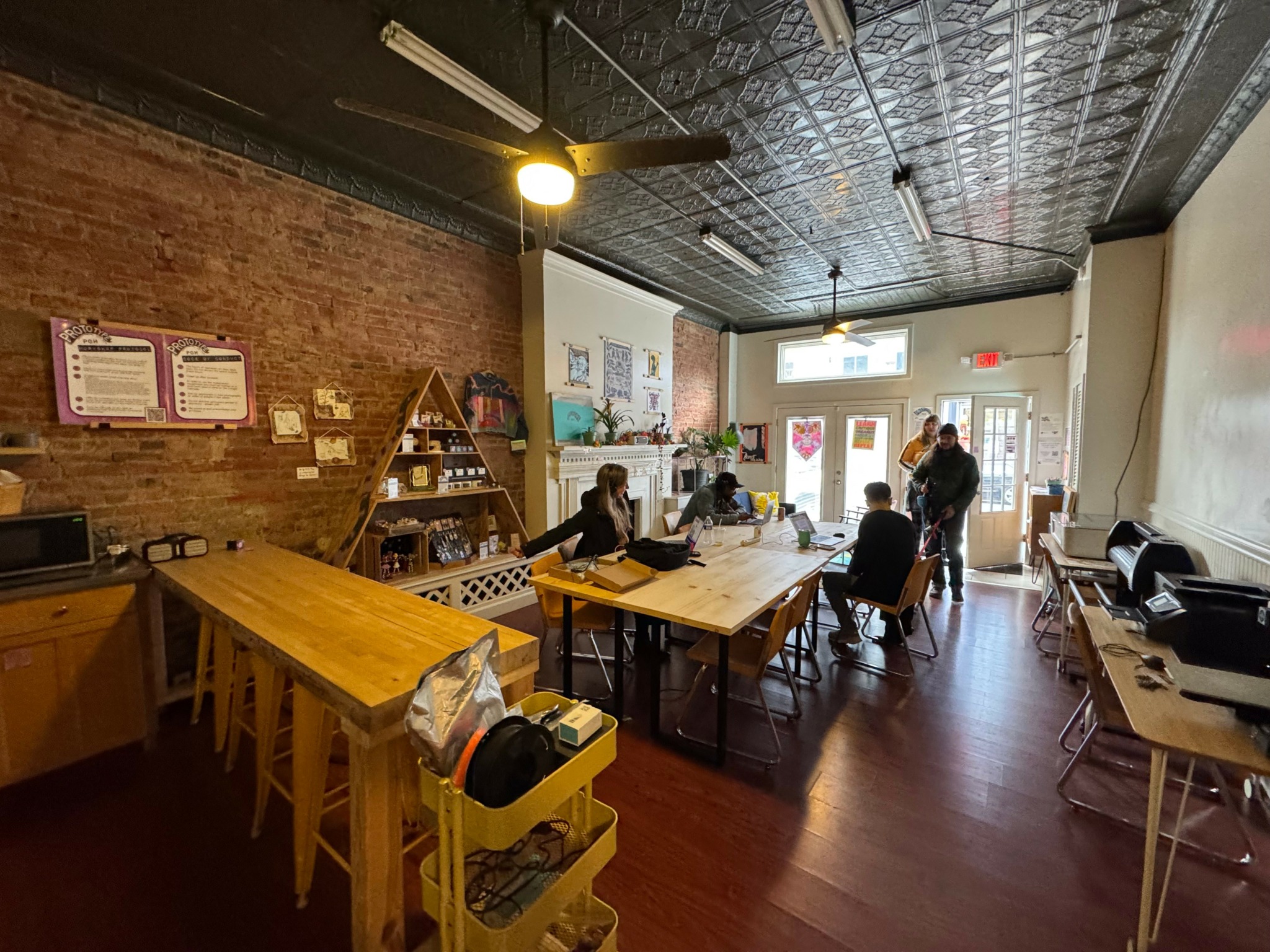
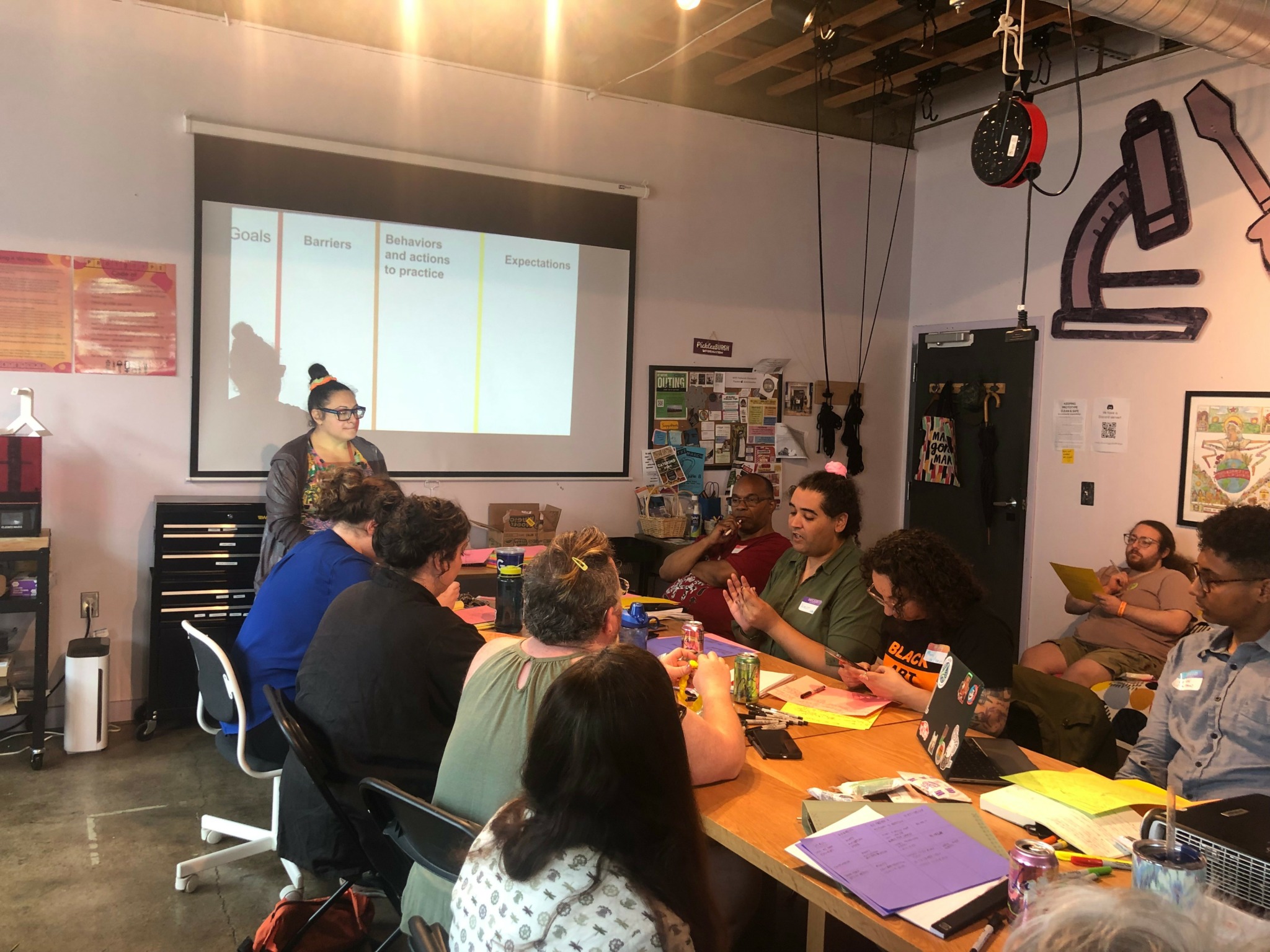
As always, we appreciate you sharing your insights and we’ve got a few more questions for you, but before we get to all of that can you take a minute to introduce yourself and give our readers some of your back background and context?
I was born in New York City but raised mostly in Pittsburgh, Pennsylvania. I have a Master’s degree in Education from the University of Toronto and a PhD in Learning Sciences and Policy from the University of Pittsburgh. I am Adjunct Faculty at Carnegie Mellon University and the Founding Director of Prototype PGH, a feminist makerspace. Prototype PGH is a 501(c)3 nonprofit organization formed in 2016 as a way to build gender and racial equity in technology and entrepreneurship. We operate two makerspaces in Pittsburgh, one in a warehouse facility in the Oakland neighborhood, and another in a retail storefront in the Sharpsburg neighborhood. At both locations, we provide access to laser cutters, 3D printers, screen printing equipment, and computer aided design software. Membership to our makerspaces is sliding scale based on self reported income, with scholarships available for people with low or no income. We also run a business incubator for emerging entrepreneurs, with a focus on low-income people, women, and people with marginalized gender identities.
Prototype aims to address gender and racial inequities not only in the tech sector but in STEM fields more broadly. Although women have made strides in Science, Technology, Engineering, and Math (STEM) fields, large disparities in pay and retention persist. Employment disparities for women of color in particular need to be addressed. According to a 2024 article by Harvard Business Review, “While 27% of computing roles in the U.S. market are held by women, just 3% and 2% are held by African-American and Hispanic American/Latina women respectively.” At Prototype we work to create a welcome and inclusive space for all women and people with marginalized gender identities to learn new tech skills, build their businesses, and be advocates for themselves in their personal and professional pursuits.
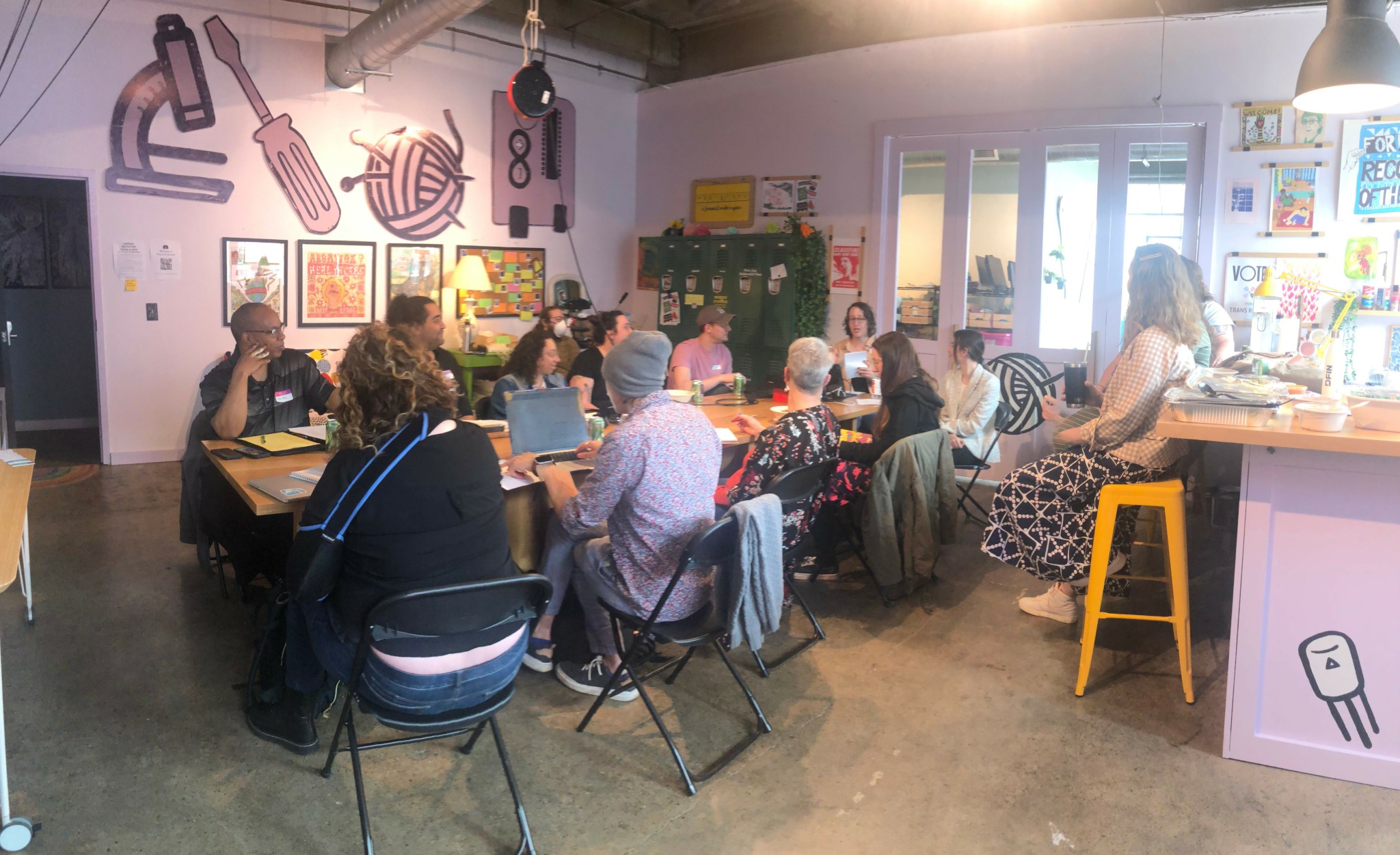
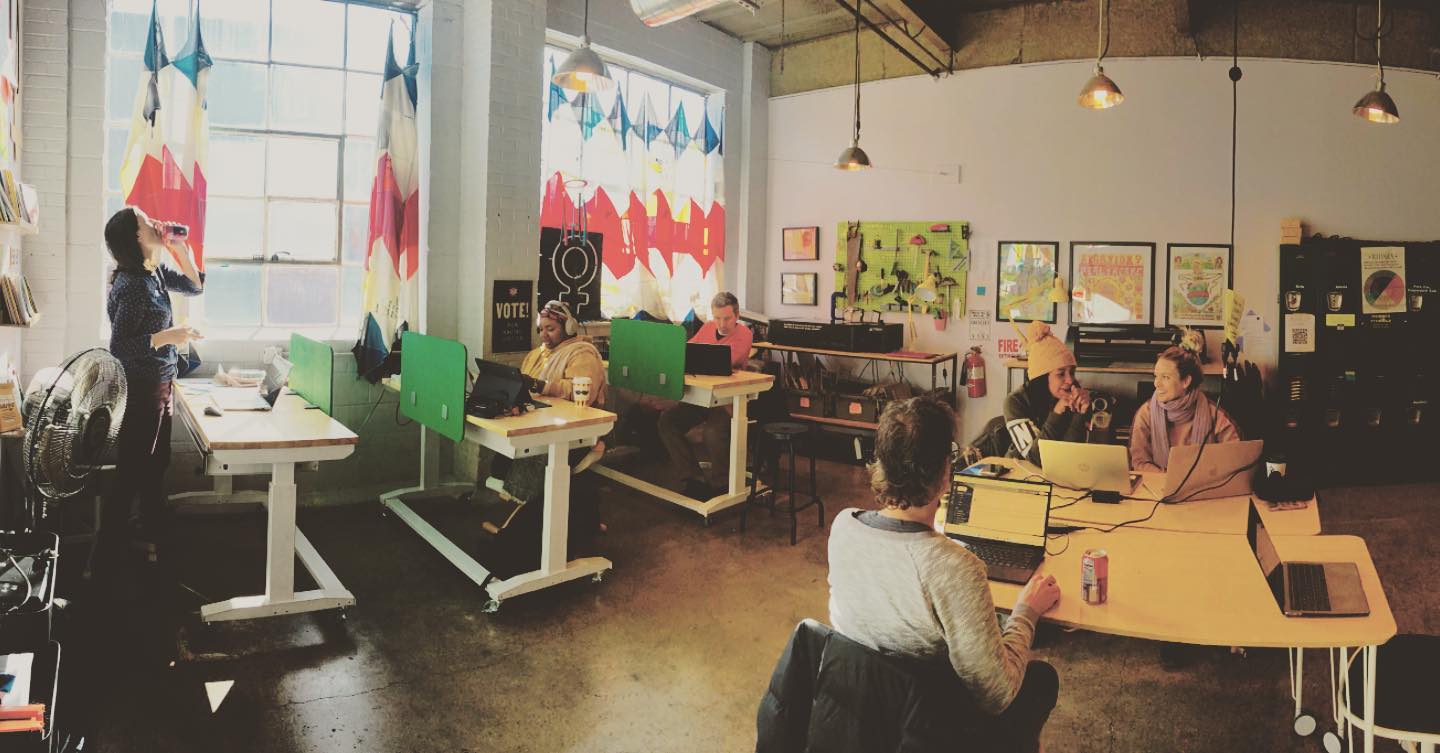
How did you put together the initial capital you needed to start your business?
Prototype was started with a $5,000 grant from a local foundation. With that initial funding, we were able to secure a small room in a warehouse for $200/month including utilities. Makerspace equipment donations poured in from the community. We received a laser cutter, 3D printer, CNC engraver, laptops, screens for screen printing, and vinyl cutter. Once we had a space and equipment, we launched a membership campaign and attracted more than 100 paying members. This has allowed us to sustain our part time staff, pay rent, upgrade equipment, purchase materials, move into a larger space, and pay workshop instructors. Additionally, we have had success receiving philanthropic and government support. Google and BNY Mellon both awarded us $50,000 and recently we became an awardee of the current U.S. President’s “Build Back Better” initiative. As part of the BBB initiative, we are launching a “Maker to Manufacturer” program for low-income women and people with marginalized gender identities to learn maker skills, participate in manufacturing training, and secure high paying position in the advanced manufacturing sector.
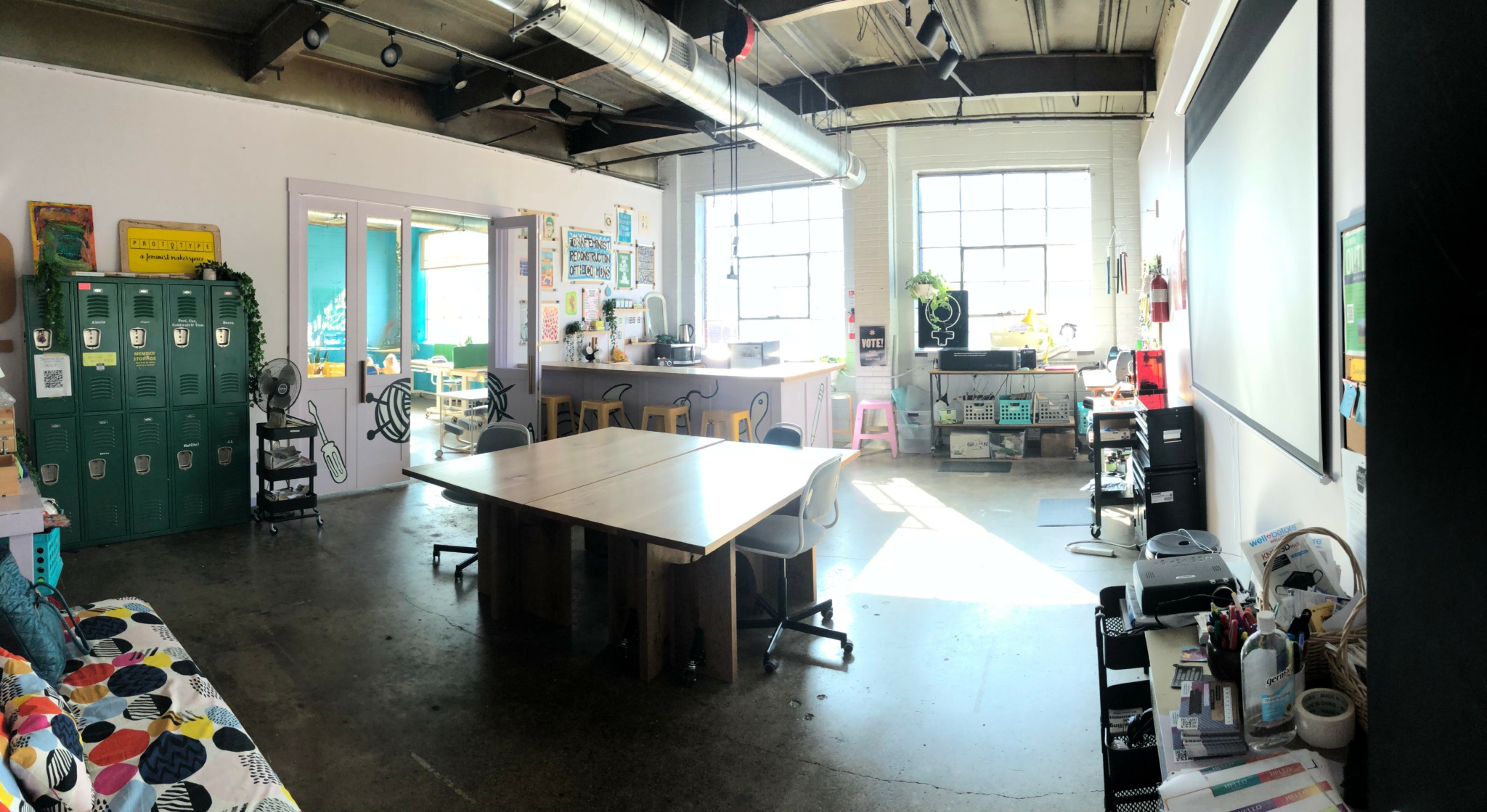
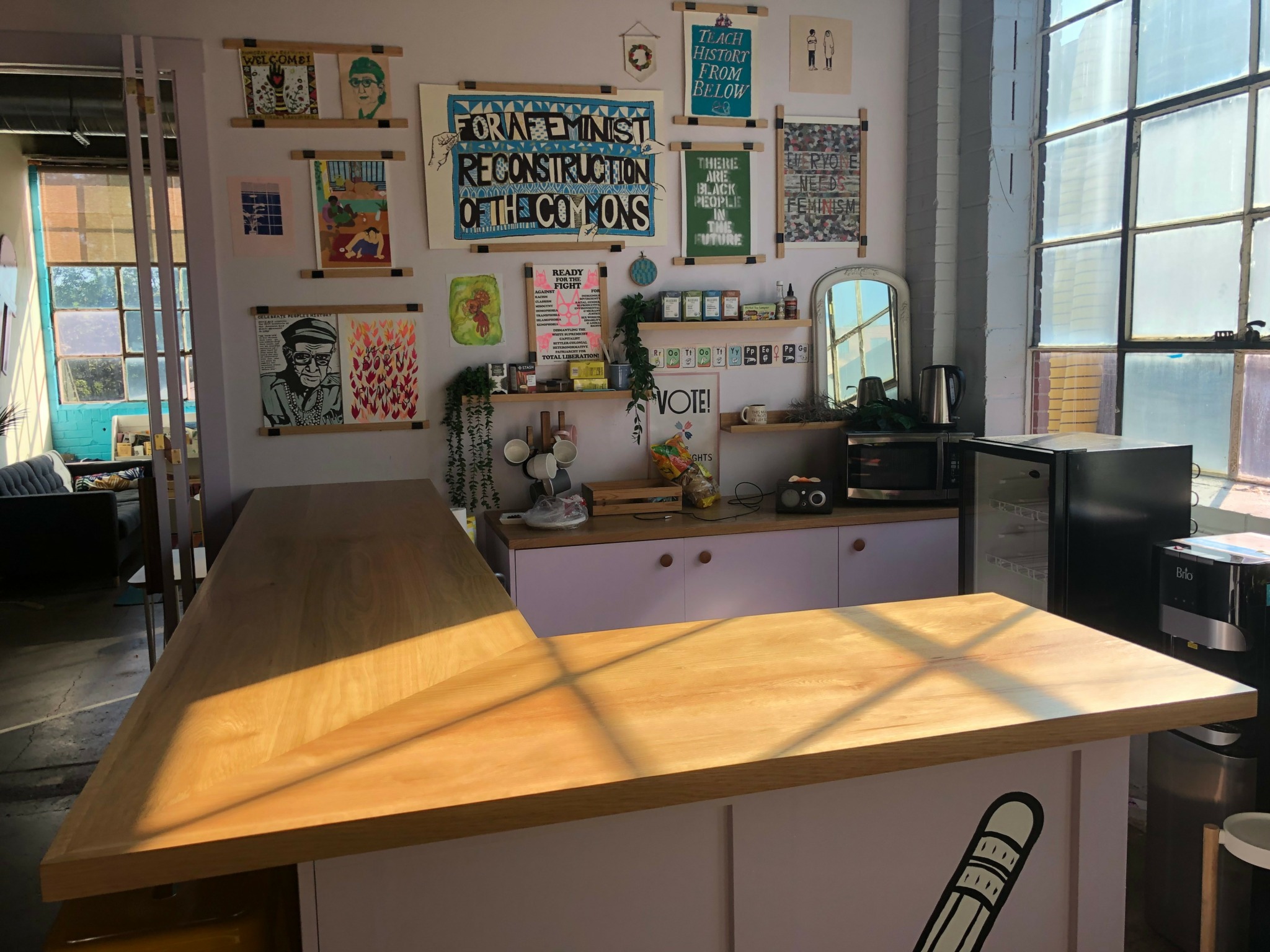
How about pivoting – can you share the story of a time you’ve had to pivot?
During the COVID-19 pandemic, when we had to close down our physical space, I was certain that we would need to permanently close. I could not imagine how we would continue to offer makerspace equipment training and access in a virtual environment. But what happened was incredible. Our members started hosting virtual workshops and meetups – knitting circles, panel discussions, and support groups. Even though our members could not access our equipment, they found ways to still share community with one another and share expertise. Our membership actually grew during the pandemic so we were able to continue paying rent and providing workshops and support to our community. In fact, when we re-opened we were able to launch a second location. What I learned from this experience is that community support is absolutely critical to our success.
Contact Info:
- Website: https://www.prototypepgh.org
- Instagram: https://instagram.com/prototypepgh
- Facebook: https://facebook.com/prototypepgh
- Linkedin: https://linkedin.com/company/prototype-pgh
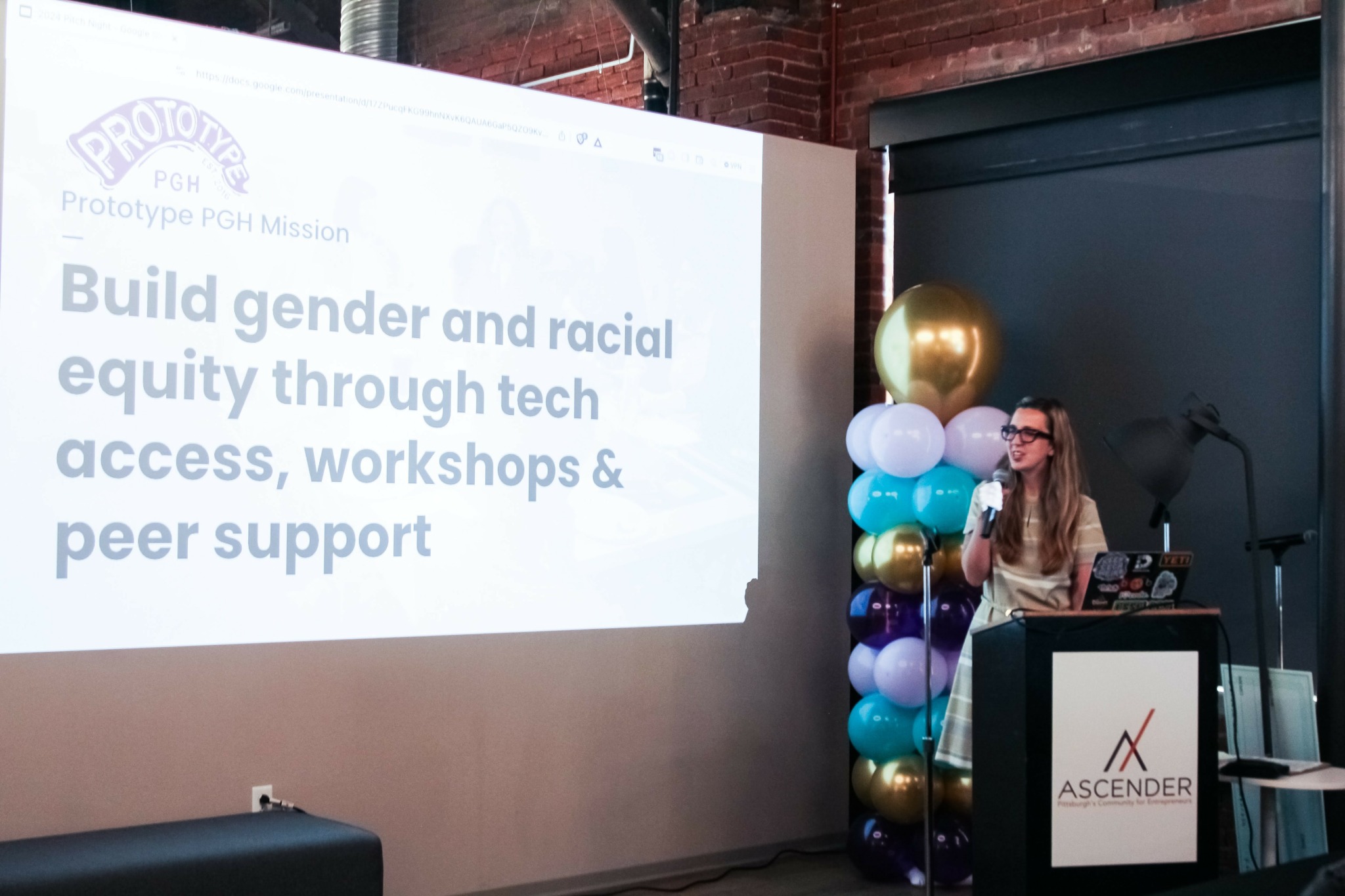
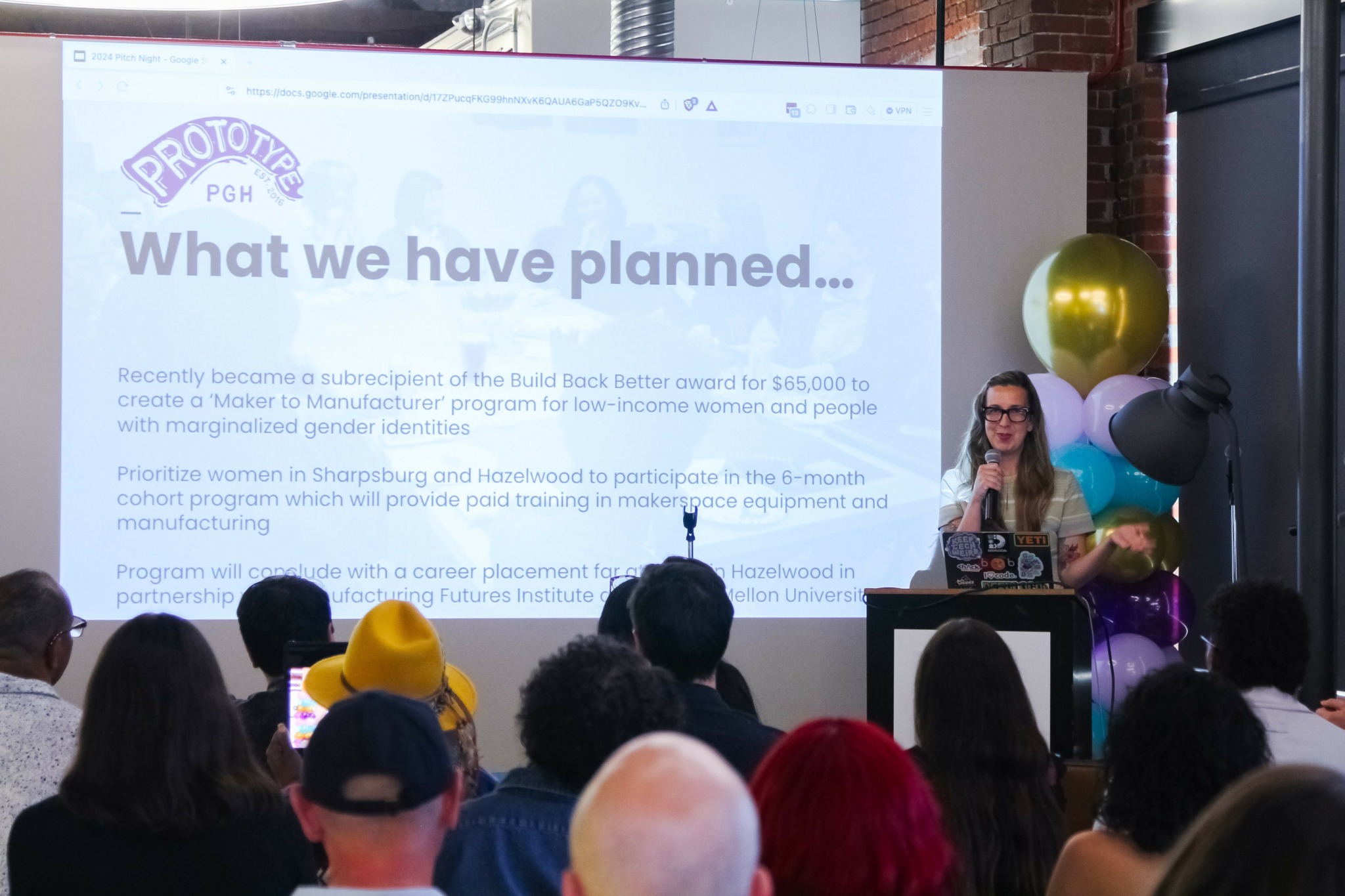
Image Credits
All photos by Prototype PGH


